The European Energy Scout Award Ceremony went online
On October 1, 2020, and for the first time, the Award Ceremony for all European Energy Scouts took place online from Athens.
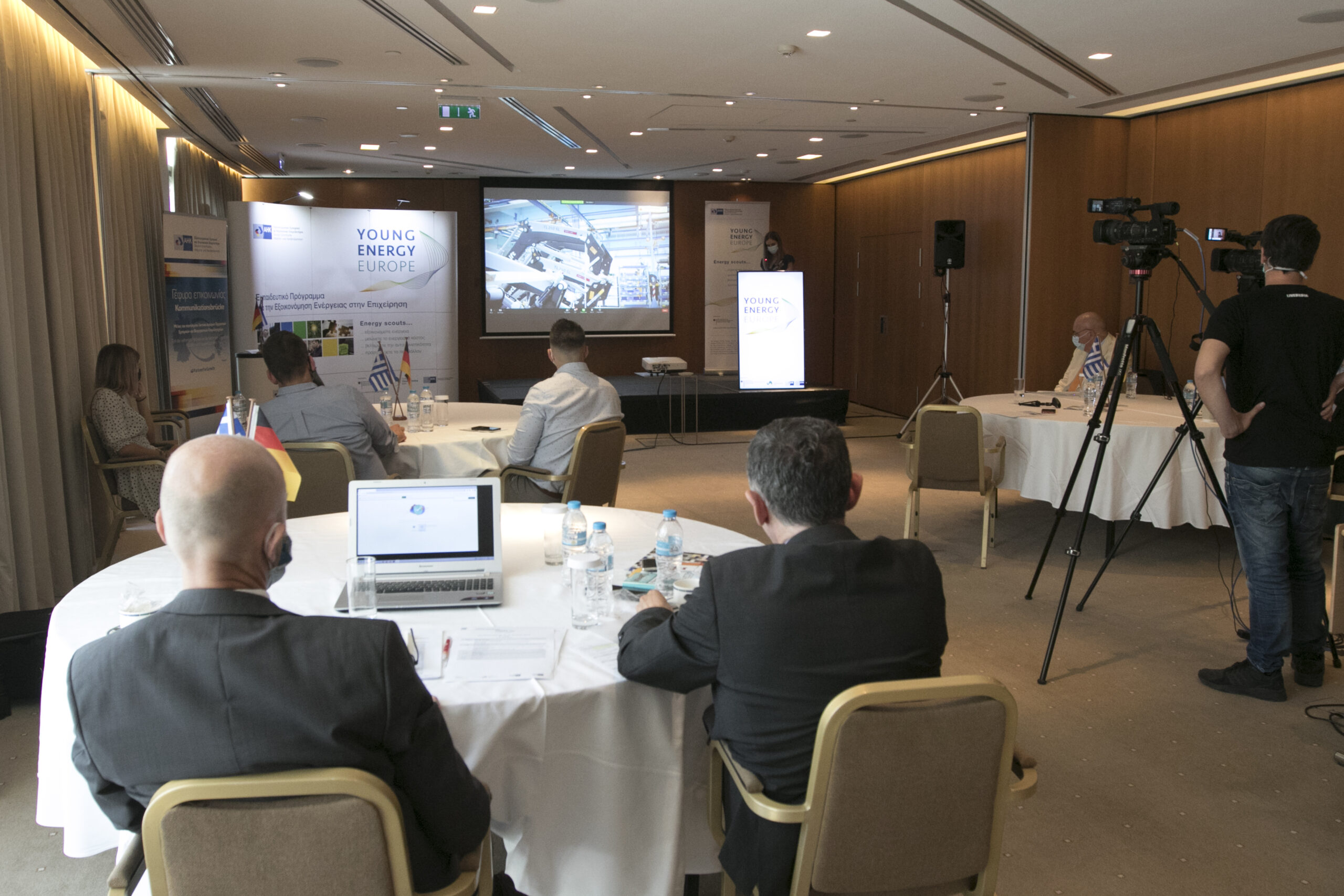
The German-Greek Chamber of Commerce and Industry (AHK Greece for its acronym in German) had invited the best European Energy Scout teams of the 2019 class. Not only the winners from Bulgaria, Greece, the Czech Republic, and Hungary attended the event, but there were about 400 participants following the event via live stream.
The best teams were honoured for their outstanding energy saving projects which are an ongoing contribution to making their companies more innovative, competitive, and climate friendly.
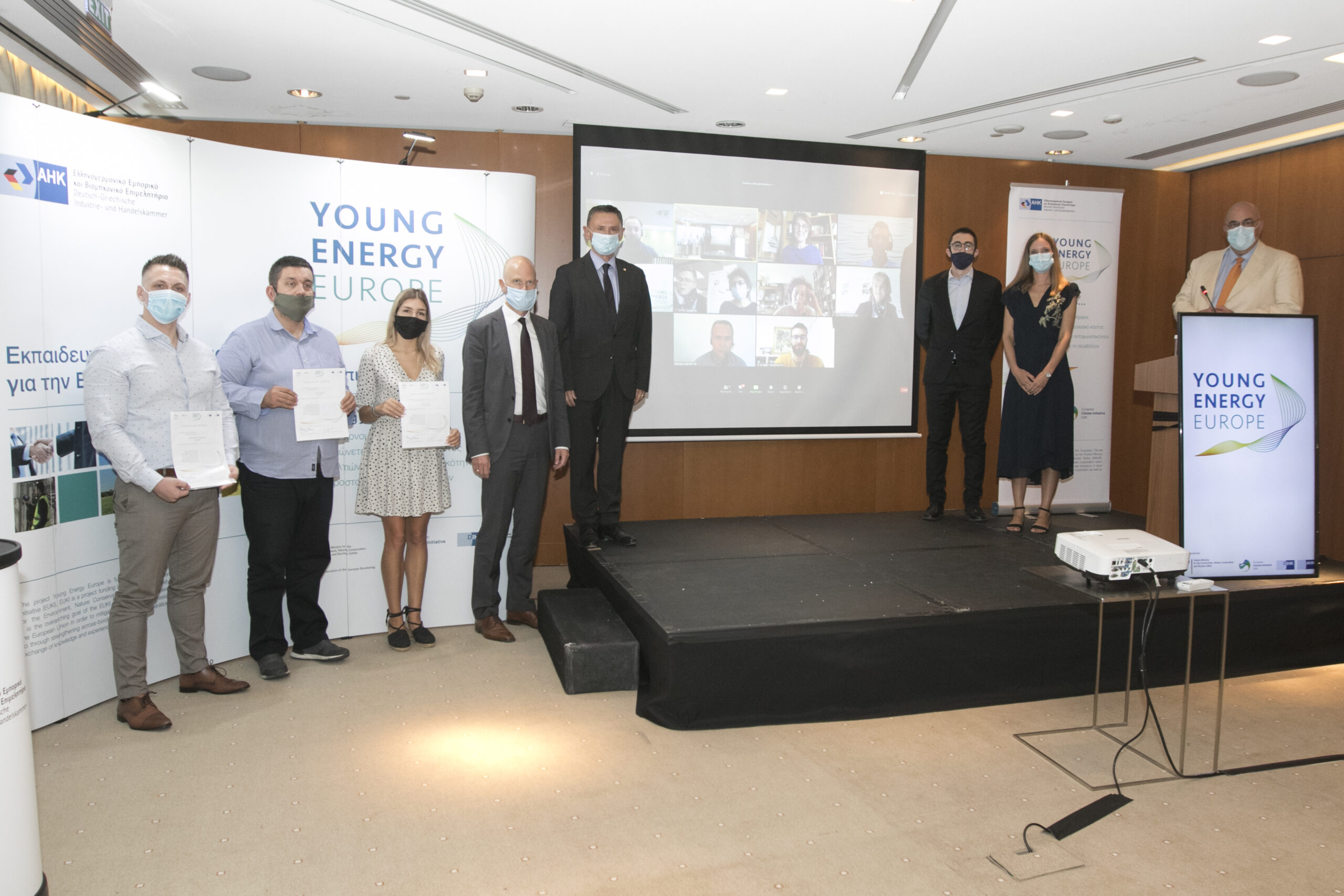
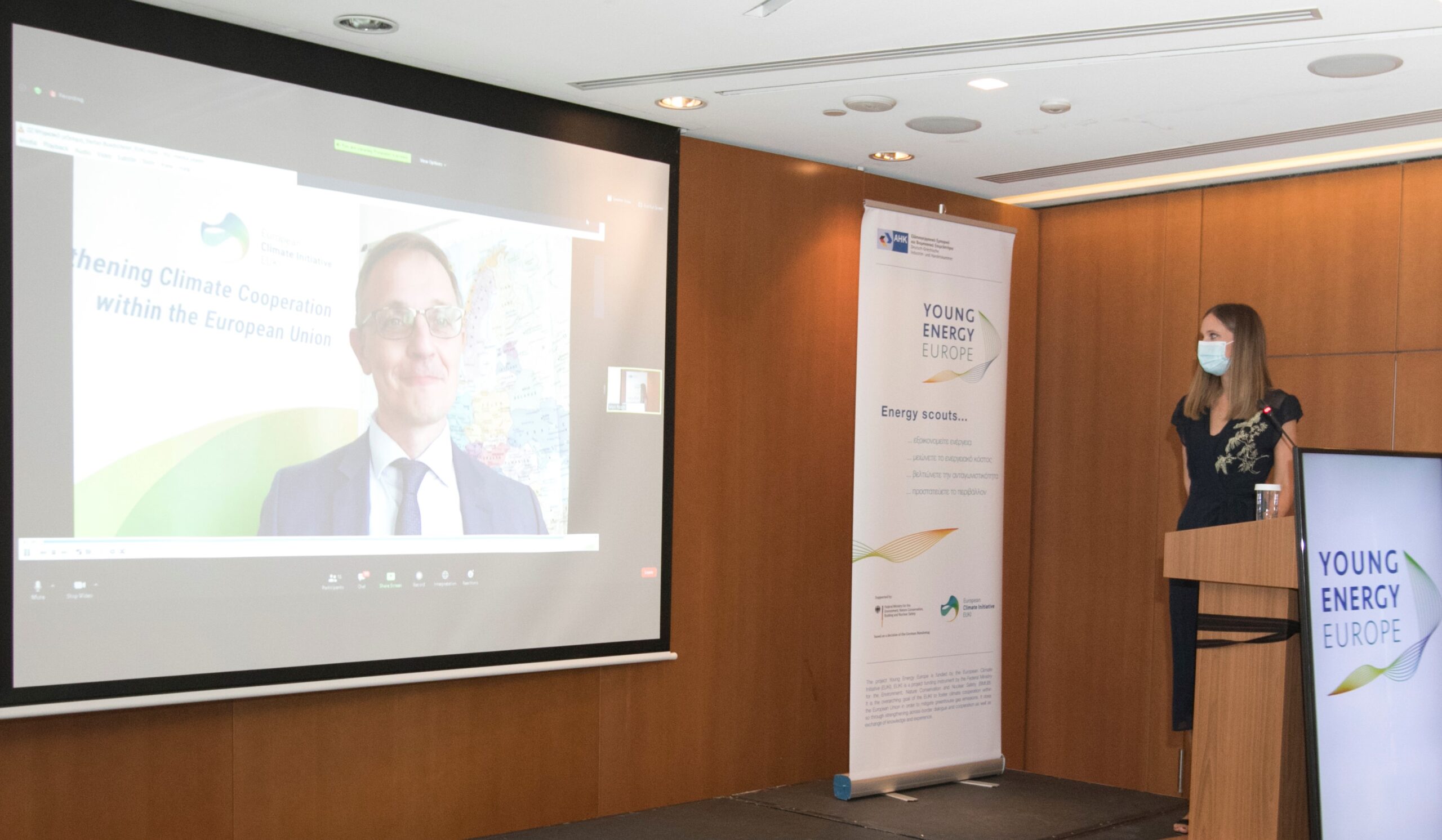
Bulgaria
In Bulgaria, Energy Scout Lyubomir Gerasimov from Dronamics was honoured. Dronamics is a young company that produces transport drones and intends to offer transport services in the near future in countries lacking infrastructure. The project developed by the Scout enables the efficient production of components from a 3D printer and reduces waste of material by 97%. His suggestions focus on resource efficiency in production, avoid the previous loss of material, and save 61% of the CO2 emissions from this process. Click here to learn more about the project.
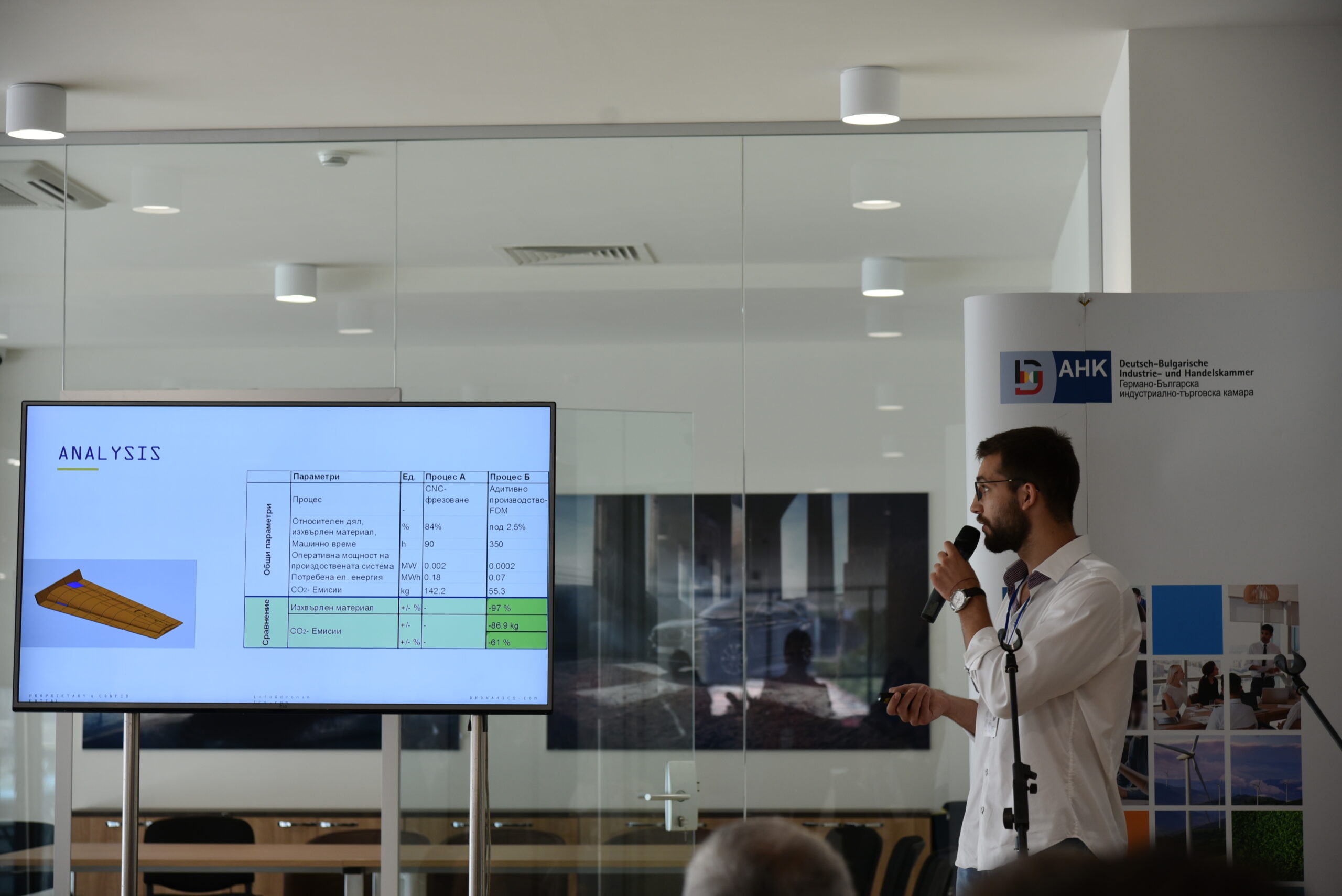
Greece
Athina Gonatha was honoured for her project in the family business TORA LUB M.E.P.E., a supplier of lubricants for the shipping industry. The soon-to-be chemical engineer proposed several measures to reduce energy consumption and costs. A digital smart meter will enable around 8% reduction across all areas of power consumption, and smart thermostats are expected to cut energy consumption of twelve air conditioning units by around 30%. A new LED lighting concept reduces energy consumption and lighting costs by around 87%. In addition, a small new rooftop PV system is expected to generate around 4,500 kWh per year. Click here to learn more about the project.
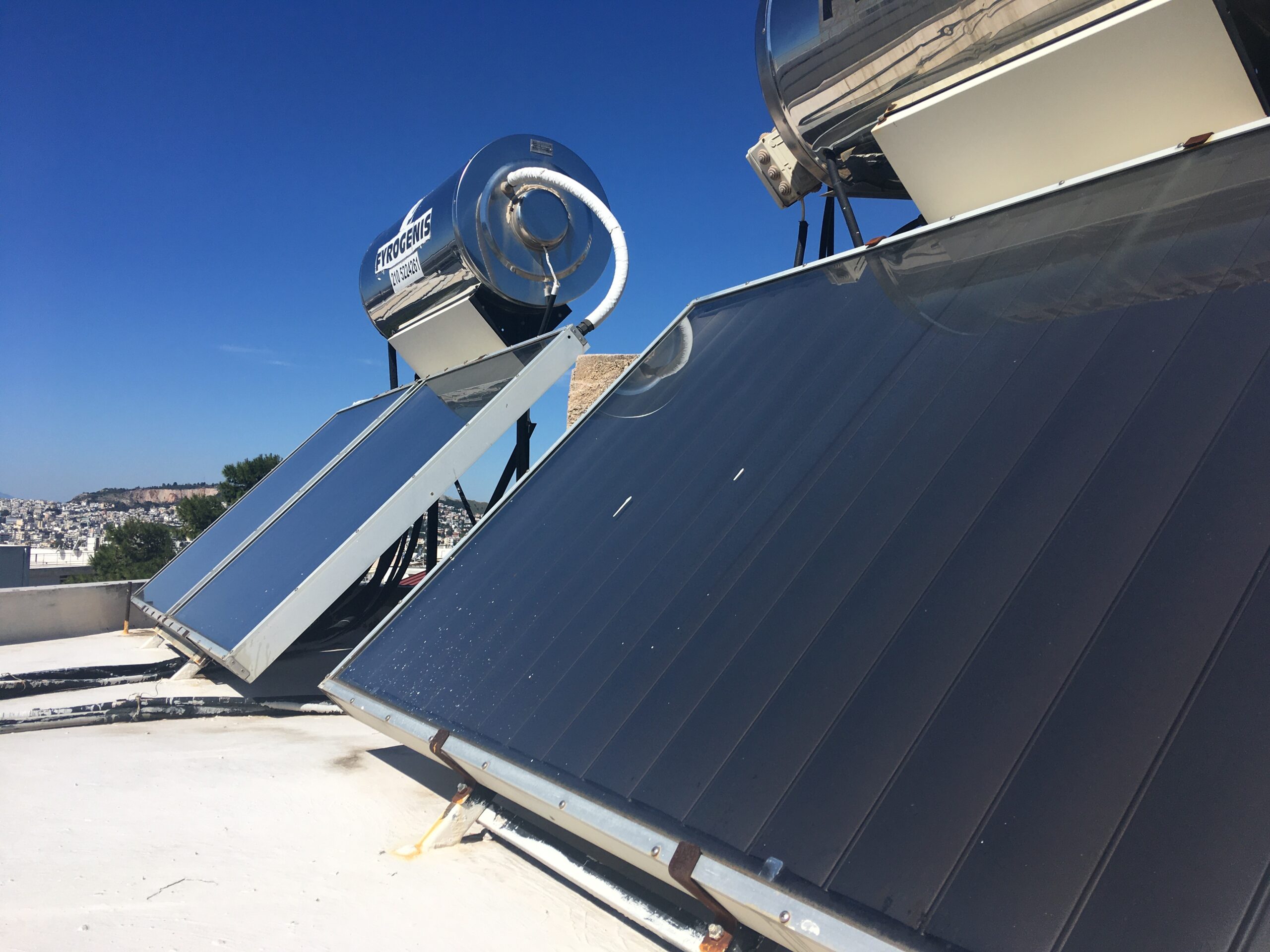
Konstantinos Spyridopoulos and Vlassis Dalmaris were honoured for their electricity reducing project in Askofruit, a company that grows and produces organic products from pomegranates. The Energy Scouts examined the energy consumption of the company’s transport operations and cooling processes. By using photovoltaics and off-peak electricity, they identified significant saving potentials and estimated a potential overall reduction of CO2 emissions to less than a third. Moreover, the two Scouts reduced the diesel consumption of sales vehicles leading to a total annual saving of almost 39 MWh of electricity. Click here to learn more about the project.
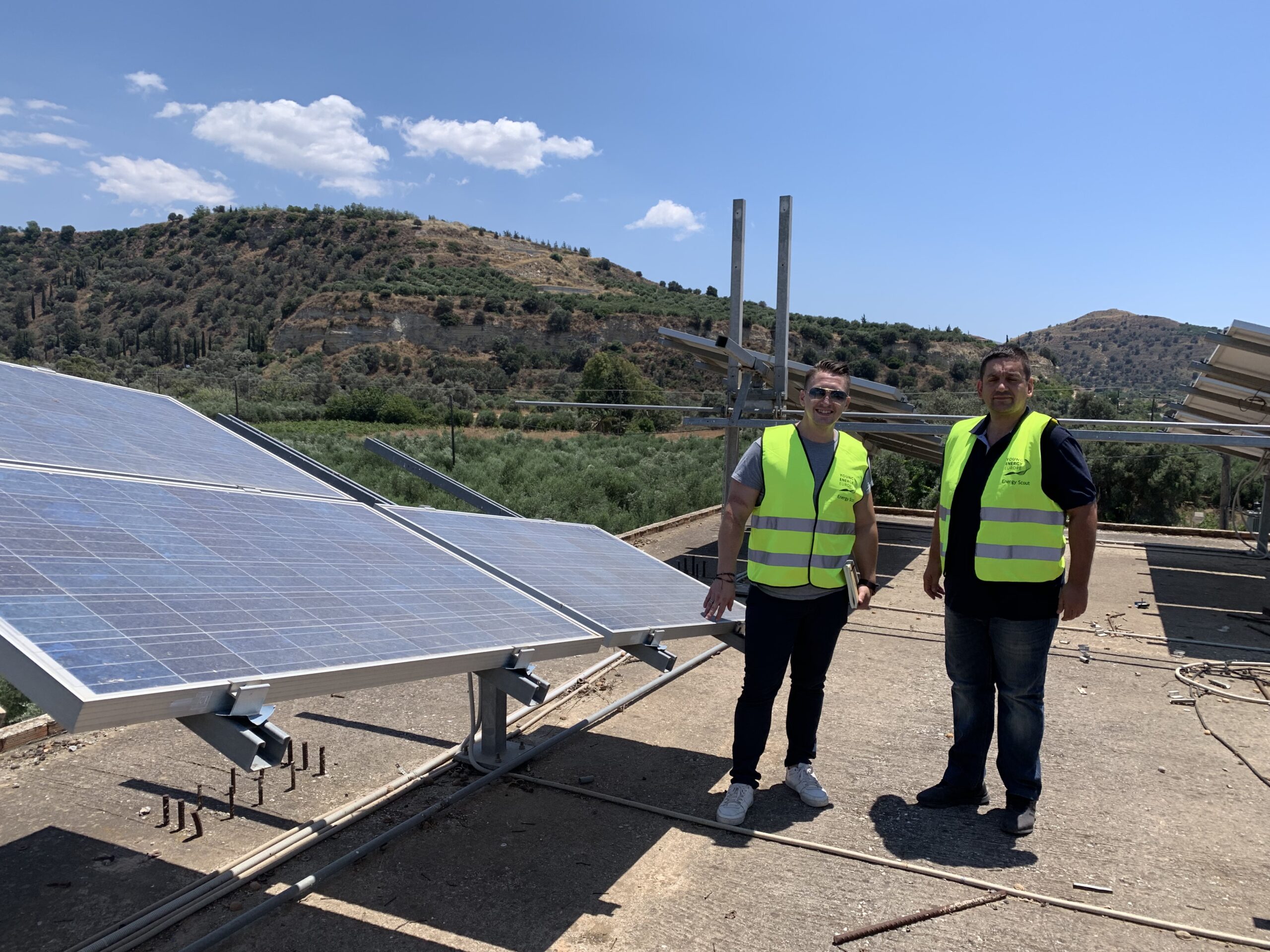
Czech Republic
Denis Kirpikov and Jiří Kašpar from the dairy Madeta a.s. in Planá nad Lužnicí were honoured for a project that addressed four areas for improvement measures. The Energy Scouts created a car-sharing exchange for employees using an interactive map, calculated the savings potential of the conversion to LED lighting in two cheese dairies and raised awareness among employees for saving energy with information material on the subjects of standby power and lighting. Moreover, the Scouts plan to save 81 m³ of hot water per year with flow regulators. In total, the LED lighting measures can reduce CO2 emissions by 18 tons and the carpooling exchange by up to 40 tons per year. Click here to learn more about the project.
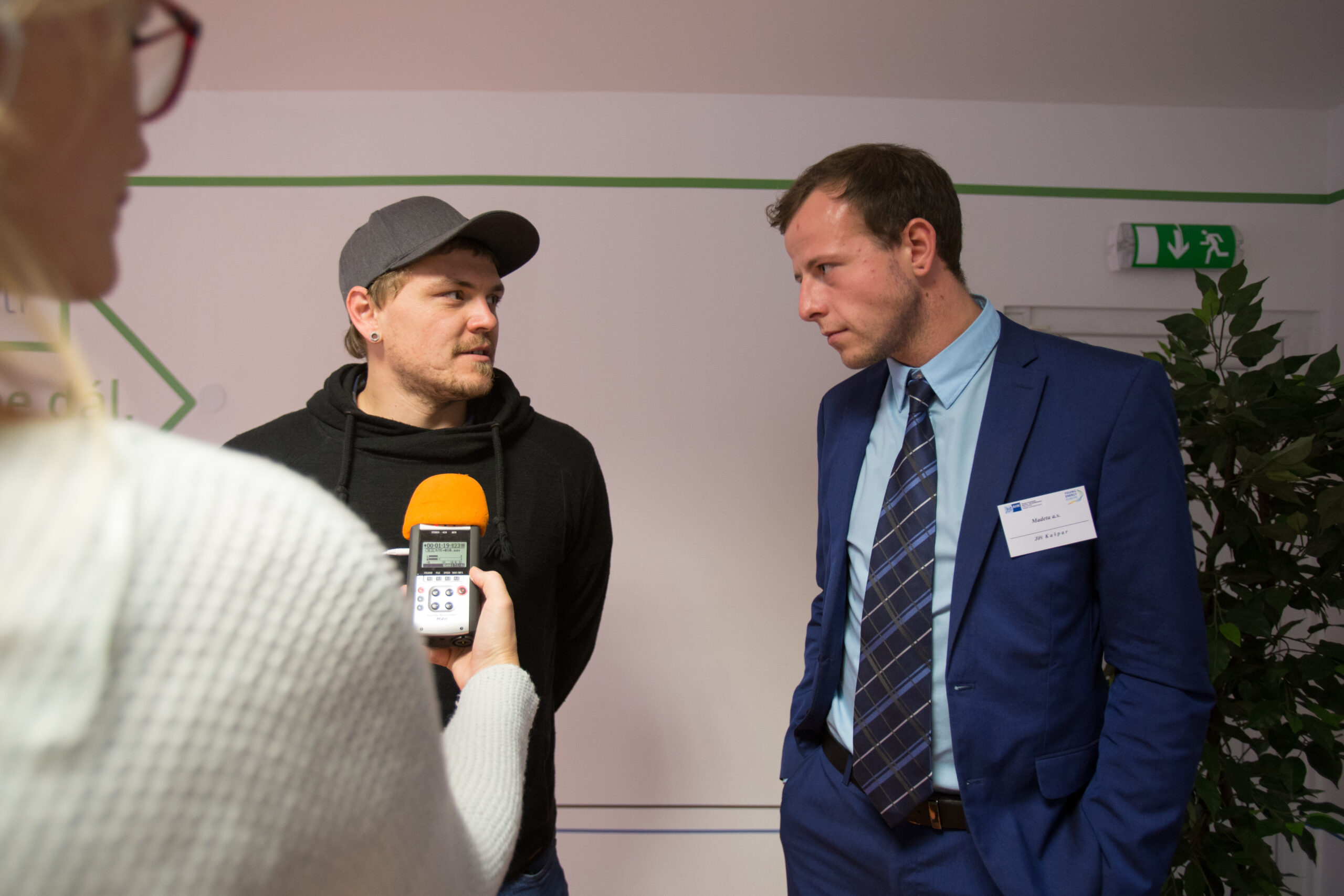
Hungary
Energy Scouts Kristóf Schneider and Ákos Nagy were honoured in Hungary. They both work in the dm Kft. logistics centre near Budapest, currently the largest drugstore chain in Europe with around 260 stores in Hungary. The project developed by the Scouts includes various mobility measures. In order to reduce the fuel consumption of the company’s vehicle fleet, the Scouts replaced standard tyres with models with less rolling resistance. In addition, the tyre pressure is monitored closely and driving trainings and informative material on sustainability for employees are provided. The Scouts have calculated that fuel savings of 12,000 litres, i.e. 8% of the annual consumption, and a reduction of CO2 emissions by 31 tons can be achieved annually. Click here to learn more about the project.
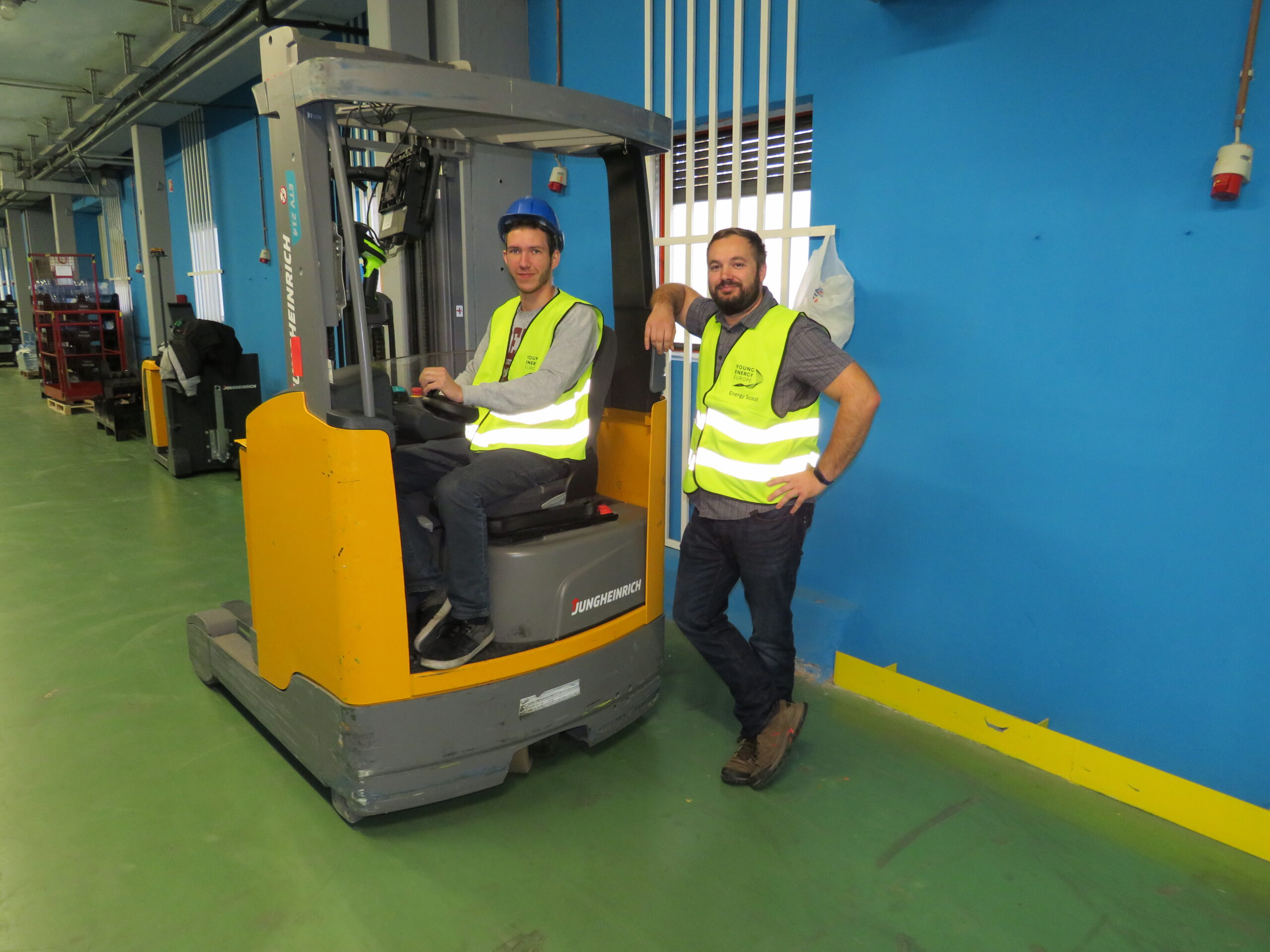
With the potentials they have uncovered in saving resources and, most importantly, savings in CO2 emissions as well as the rising awareness they bring about, the Scouts take a big step on the road to a low-carbon economy.
Click here to see the recording of the event.

